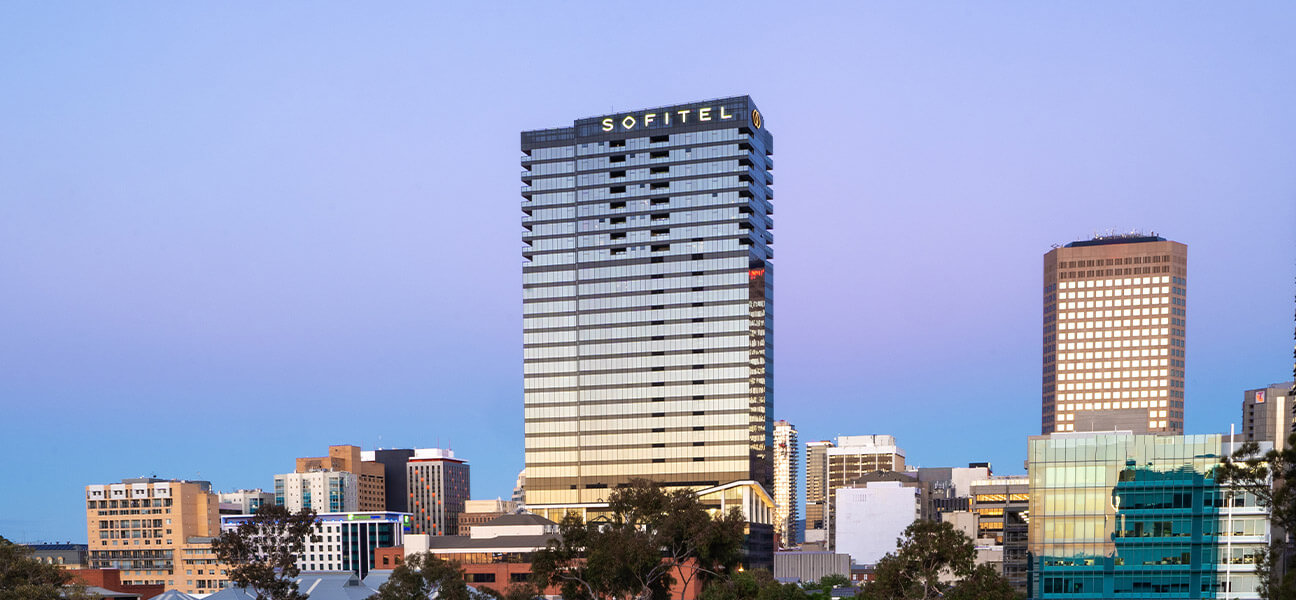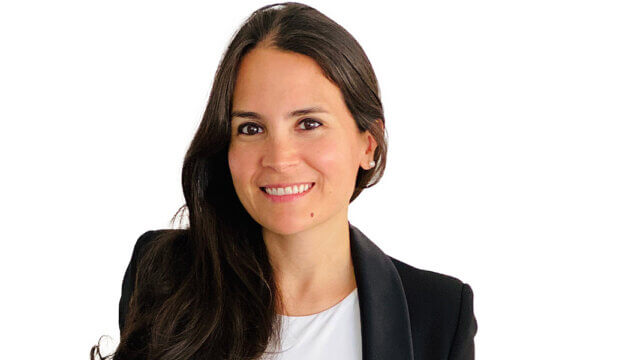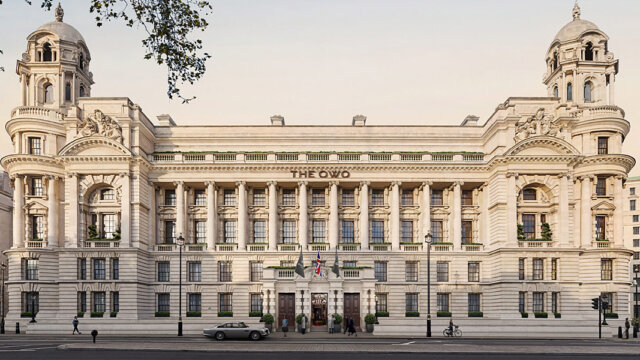In its full-year 2021 report, Accor said that RevPAR trended upward from April through December, with ADR coming close to—or, in some regions, even surpassing—2019 levels.
“Despite a disrupted start of the year due to overall health restrictions, 2021 showed significant improvement in our business, as of the spring, with trends picking up month after month right up to December,” said Sébastien Bazin, chairman/CEO, Accor. “Our solid performances were achieved owing to the strength of our brands, our financial discipline and the sterling efforts of our teams who, throughout the year, demonstrated determination, tenacity and generosity. Thanks to their mobilization, we emerge stronger from this crisis and have gained market shares in all our key regions. Moreover, our pipeline continues to flourish, with the luxury & upscale segment representing close to 40% of future openings, a 12-point increase in the past four years. As the desire to escape and to resume traveling has never been stronger; we are well underway to make the most of this rebound in all our markets. In 2022, we will continue to unfold our vision of ever-more experience-driven and sustainable tourism, facilitated by digital technologies. Armed with these strengths, we are confident in our capacity to enduringly continue creating value for our partners as well as our shareholders.”
Although the effects of this unprecedented crisis linked to the COVID-19 pandemic have not yet fully disappeared, all of the group’s geographies now appear to be well on the way to enjoying more “normative” levels of business. With the Omicron variant outbreak, January marked a pause in the monthly RevPAR improvement seen since April, but February is already a turning point.
During 2021, Accor organically opened 288 hotels (including Sofitel Adelaide, shown above), representing 41,000 rooms, resulting in a net growth in the network of 3% over the 12-month period. At the end of December 2021, the group had a hotel portfolio of 777,714 rooms (5,298 hotels) and a pipeline of 214,000 rooms (1,218 hotels).
For 2022, the group expects a net unit growth of 3.5%.
Consolidated revenue
In 2021, the group reported consolidated revenue of 2.204 billion euros ($2.473 billion), up 34% like-for-like (LFL) versus full-year (FY) 2020. By activity, this growth breaks down into a 36% increase for hotel services and 29% for hotel assets & other. To provide a comparison with RevPAR (presented as the change versus FY 2019 throughout this release), the LFL decline in revenue vs. FY 2019 is 42%.
Changes in the scope of consolidation (acquisitions and disposals) contributed a positive
47 million euros ($57.2 million), largely due to the full consolidation of sbe since Q4 2020.
Currency effects had a negative impact of 13 million euros ($14.6 million), mainly due to the U.S. dollar (-4%).
HotelServices
HotelServices, which includes fees from management & franchise (M&F) and services to owners, generated 1.582 billion euros ($1.775 billion) in revenue, up 36% LFL versus FY 2020 (down 46% LFL versus FY 2019). This increase reflected the sharp recovery in business during the second half of the year.
Revenue in the management & franchise (M&F) stood at 518 million euros ($581.3 million), up 74% LFL versus FY 2020 (down 51% LFL versus FY 2019), with regional performances correlated to health crisis developments in the countries considered. In general, the sharper decline in M&F revenue compared to RevPAR (down 46% over FY 2021 versus FY 2019) can be attributed to the strong decrease in incentive fees based on the hotel operating margin generated from management contracts.
Consolidated RevPAR was down 46% overall in 2021 versus FY 2019. This decline reflects an environment disrupted by the resurgence of the COVID-19 pandemic, despite a marked improvement in global business levels from April 2021.
South Europe, driven by France, reported a 41% decline in RevPAR over FY 2021 compared with FY 2019. This number shows a marked sequential improvement in this indicator which was down by “only” 17% during the closing quarter (i.e., +7 percentage points between the third and fourth quarters).
- In France, RevPAR was down 39% over FY 2021 compared with FY 2019. The strength of domestic leisure tourism demand allowed the activity levels to be recovered since the summer (RevPAR down 27% over FY 2021 compared with FY 2019 with average prices in line with those observed in 2019). In subsequent months, the return of business travelers (notably intra-company events) benefited the Paris region with RevPAR down 56% for FY 2021 compared with FY 2019.
- In Spain, RevPAR was down 52% for FY 2021 compared with FY 2019 with a strong rebound since June.
North Europe showed a more modest sequential improvement (+2 percentage points between the third and fourth quarters) and ended FY 2021 with RevPAR down 57% compared with FY 2019.
- In the U.K., RevPAR was down 49% in FY 2021 compared with FY 2019 with the structure of the recovery similar to that seen in France. Regional cities (down 34% for FY 2021 versus FY 2019) benefited from domestic leisure tourism demand with average prices higher than those seen in 2019. London, more dependent on international visitors, saw RevPAR decline by 63%.
- In Germany, where health restrictions were tougher than in neighboring countries, RevPAR was down 66% in FY 2021 compared with FY 2019.
The Asia-Pacific region enjoyed a sequential improvement in RevPAR (+9 percentage points between the third and fourth quarters) after a third quarter hit by tighter COVID restrictions. RevPAR was down 49% in FY 2021 compared with FY 2019.
- Pacific RevPAR benefited from the easing of health restrictions from October in Sydney and the gradual reopening of internal borders in Australia. RevPAR was down 42% for FY 2021 compared with FY 2019. The recovery in business was confirmed in January 2022 and should continue with the reopening of Australia’s international borders from Feb. 21.
- In China, the recovery in RevPAR was more uneven, impacted by a resurgence in COVID-19 cases and the introduction of a strict “zero COVID” policy. RevPAR was down 32% for FY 2021 compared with FY 2019.
- In Southeast Asia, signs of improvement materialized thanks to the step-up in vaccination campaigns and the easing of health restrictions, notably in Thailand and Indonesia. Business in Singapore remains closely linked to traveler quarantines. In the region, RevPAR was down 66% in FY 2021 compared with FY 2019.
In the India, Middle East, Africa & Turkey (IMEAT) region, the recovery in business between the third and fourth quarters was impressive (+28 percentage points with RevPAR exceeding FY 2019 levels in the last quarter). While business in Saudi Arabia remained held back by tight restrictions weighing on pilgrimages, the United Arab Emirates benefit from demand linked to Expo 2021 which started from Oct. 1, 2021. RevPAR was down 28% in FY 2021 compared with FY 2019 in this region.
In the Americas, the improvement in RevPAR was also noteworthy (+18 percentage points between the third and fourth quarters) which translated into a FY 2021 RevPAR down 46% compared with FY 2019.
- North/Central America and the Caribbean reported RevPAR down 48% for FY 2021 compared with FY 2019. The easing of travel restrictions between Canada and the US, as well as Christmas holiday season accelerated the end-of-year improvement.
- In South America, RevPAR was down 42% for FY 2021 compared with FY 2019. Improvements are continuing as vaccination campaigns ramp up. Over the last months of the year, average room rates came close to or even exceeded 2019 levels on LFL basis.


